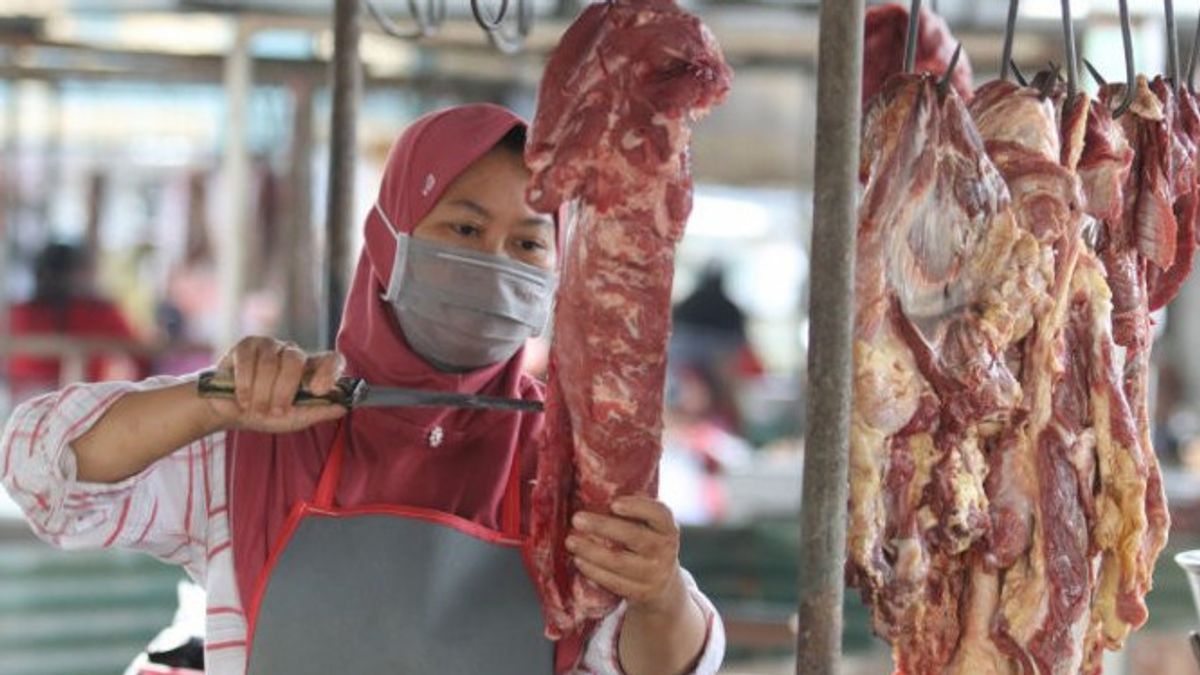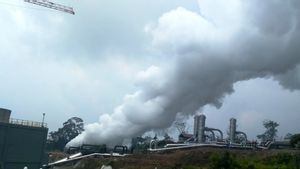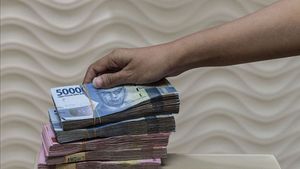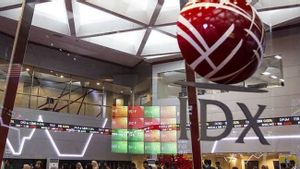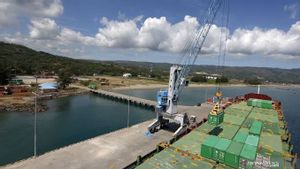JAKARTA - Beef prices have consistently risen ahead of Ramadan until now. In fact, the Business Competition Supervisory Commission (KPPU) found that the price hike had reached Rp130 thousand to Rp140 thousand in several regions.
Director General of Domestic Trade, Oke Nurwan, said that the price was influenced by several factors. One of them is the international price.
Oke said all countries this year are facing the same problem, namely the COVID-19 pandemic. This pandemic has an impact on the increase in several commodity prices and even on price determining factors which are included in super cycle commodities or prices that are already very high.
Furthermore, he said, some of the commodities in this super cycle position were beneficial for Indonesia and some which affected domestic prices. Meanwhile, cattle are a commodity that is included in the super cycle. This is because the price for cow feed is very high.
Meanwhile, the price of beef is influenced by supply, demand and other factors. For supply, Indonesia fulfills domestic needs through several sources, namely local cattle, feeder cattle and frozen beef and buffalo.
Oke said that the fulfillment of animal protein, namely beef for national needs, cannot rely on local breeders. This is because local breeders carry a sustainable system. This means that cows will only be sold when needed.
"The majority of local breeders are oriented towards sustainable business. So these local cattle breeders are expelled when they need them. So that they cannot become a reserve that can be used as a definite policy maker. As a result, the existing stock is not sure if it is ready to be sold," he said in a virtual discussion, Friday, 7 May.
Furthermore, Oke said domestic production would not necessarily be able to meet the continuous national demand for beef. Therefore, the government cannot rely on local cows belonging to the community.
"The need for beef can also be met by procuring imported beef. I can say that the feeder cattle that are currently imported are 100 percent from Australia," he said.
Oke said, for imported frozen meat, Indonesia is very dependent on Australia. Meanwhile, the demand for Australian cattle is also not only for Indonesia. Even though more than 50 percent of Australian supplies go to Indonesia. But there are other countries that have increased demand, such as from China and Vietnam.
"Meanwhile, Indonesia really needs supplies from Australia to meet domestic needs in the context of fasting and Eid," he said.
The influence of international pricesThen, said Oke, other factors that influence the increase in beef prices are international prices and exchange rates. This means that if there is an increase in prices at the international level, it will affect domestic prices.
"The price of cattle from Australia, I must tell you, has now increased since the end of 2020 due to the depopulation of cattle in Australia. Why is there a depopulation and this has an impact on the price of Australian cattle supply to increase? We know that in Australia there was a fire last year and this disturbed its cattle population," he said.
In fact, said Oke, in mid-2020 the threat of cow depopulation occurred. Where one indicator is that Australia has slaughtered cows that are female but with restrictions.
The aim is to keep Australia as the largest supplier or one of the world's suppliers. According to him, Australia is the second supplier after Brazil.
Oke explained, for Australia this depopulation will threaten its continuation as a world supplier. However, this is currently being improved and due to forest fires the diet of cattle has changed from grass-based to grain-based diets.
"Australia is starting to open grain-based feed imports. This is what happened in Australia and meanwhile, grain-based feed is a super cycle commodity, the price is high because of competition," he said.
Oke said the availability of beef or buffalo in April 2021 was 76,116 tons, consisting of 27 thousand end March stocks and 38,800 beef feeders, which is equivalent to 7,444 tons of beef. There are 10024 tonnes of available Indian buffalo beef from Brazil, only 196 tonnes of beef imported by the private sector have entered 18,780 tonnes.
"And local production is 14,429 tons. These data were obtained from the results of a limited coordination meeting held on March 31 coordinated by the Ministry of Economy," he said.
The English, Chinese, Japanese, Arabic, and French versions are automatically generated by the AI. So there may still be inaccuracies in translating, please always see Indonesian as our main language. (system supported by DigitalSiber.id)
